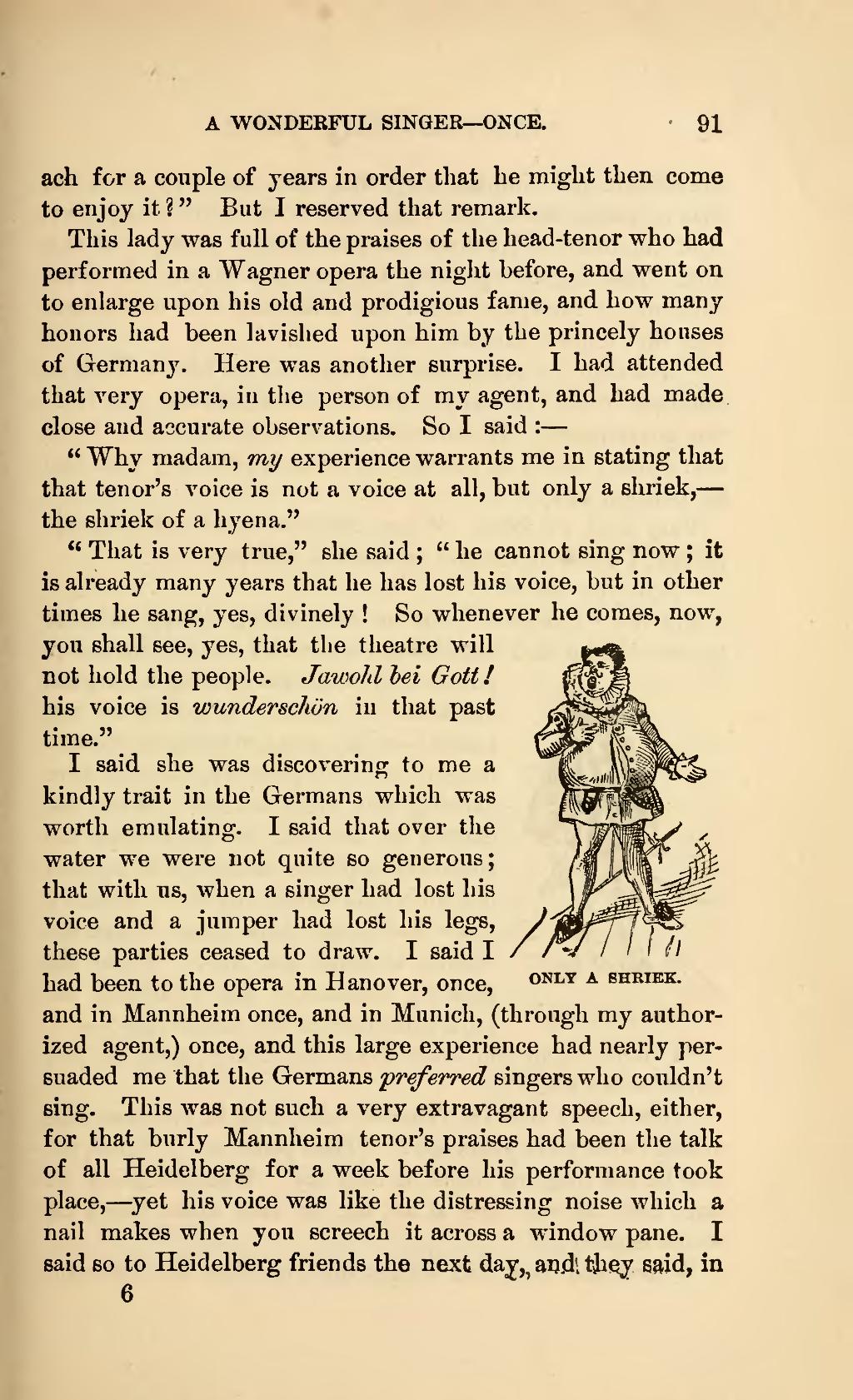ach for a couple of years in order that he might then come to enjoy it?" But I reserved that remark.
This lady was full of the praises of the head-tenor who had performed in a Wagner opera the night before, and went on to enlarge upon his old and prodigious fame, and how many honors had been lavished upon him by the princely houses of Germany. Here was another surprise. I had attended that very opera, in the person of my agent, and had made close and accurate observations. So I said:—
"Why madam, my experience warrants me in stating that that tenor's voice is not a voice at all, but only a shriek,—the shriek of a hyena."
"That is very true," she said; "he cannot sing now; it is already many years that he has lost his voice, but in other times he sang, yes, divinely!
 |
| ONLY A SHRIEK. |
So whenever he comes, now, you shall see, yes, that the theatre will not hold the people. Jawohl bei Gott! his voice is wunderschön in that past time."
I said she was discovering to me a kindly trait in the Germans which was worth emulating. I said that over the water we were not quite so generous; that with us, when a singer had lost his voice and a jumper had lost his legs, these parties ceased to draw. I said I had been to the opera in Hanover, once, and in Mannheim once, and in Munich, (through my authorized agent,) once, and this large experience had nearly persuaded me that the Germans preferred singers who couldn't sing. This was not such a very extravagant speech, either, for that burly Mannheim tenor's praises had been the talk of all Heidelberg for a week before his performance took place,—yet his voice was like the distressing noise which a nail makes when you screech it across a window pane. I said so to Heidelberg friends the next day, and they said, in

